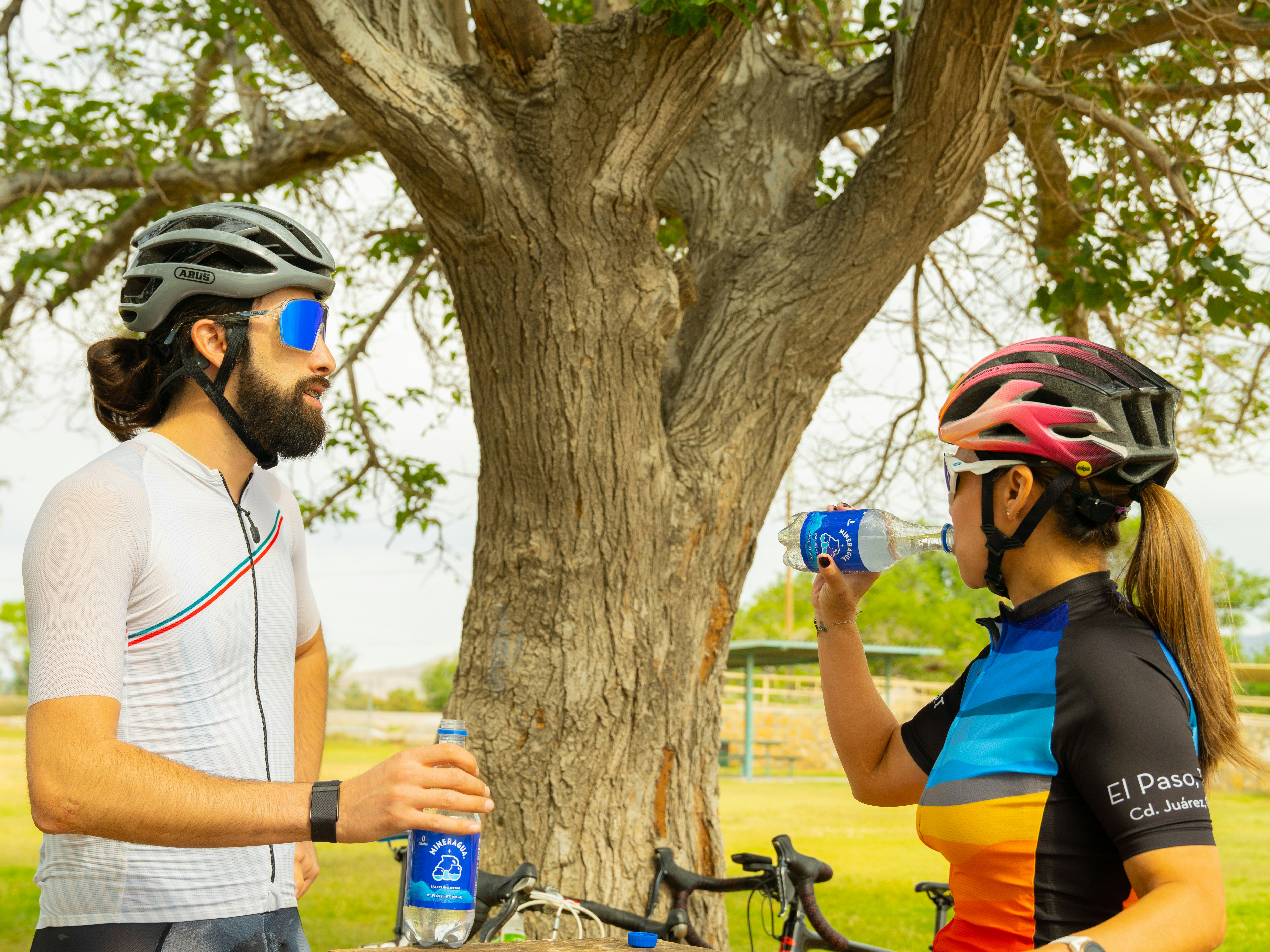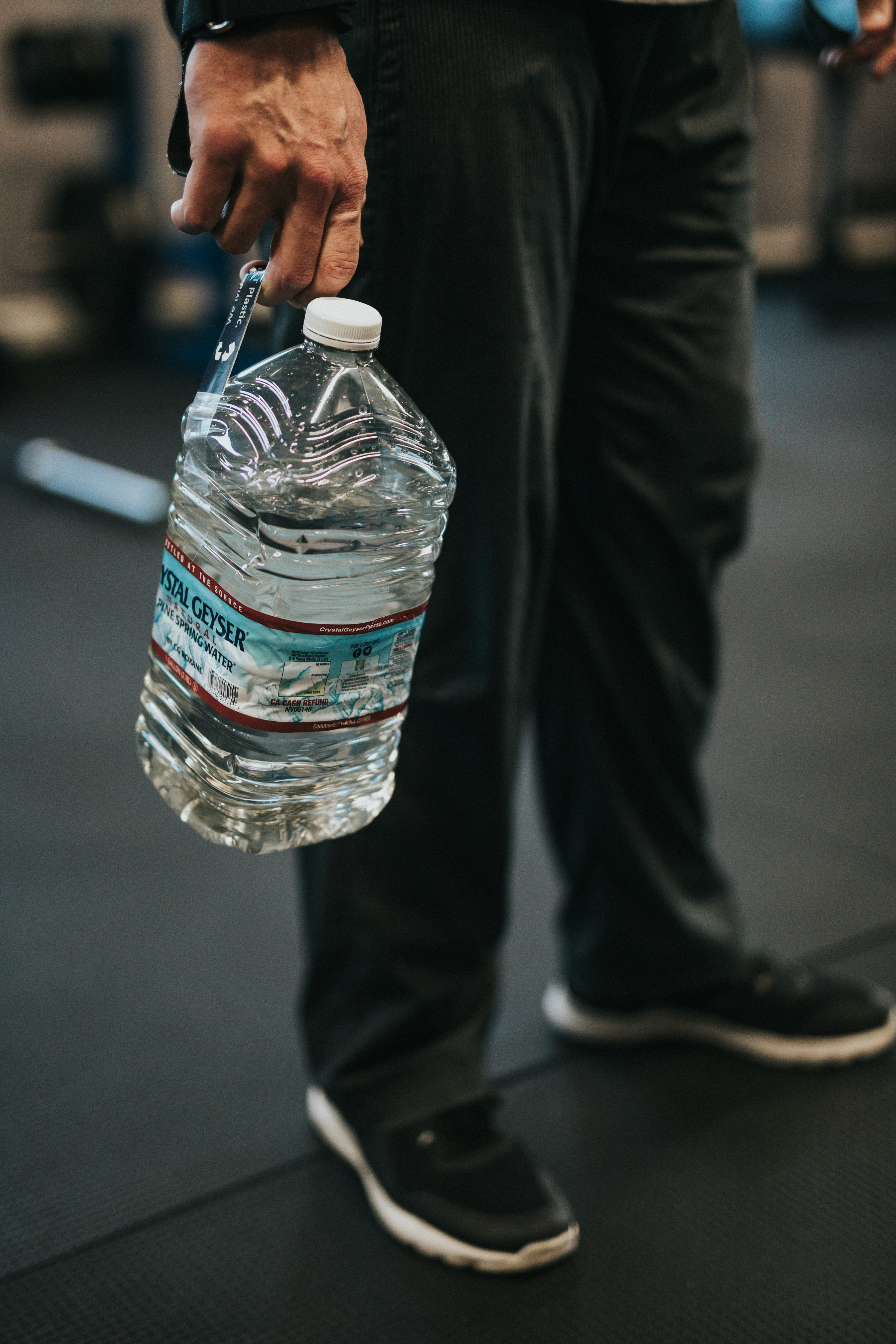Are you looking to stay hydrated and maintain a healthy electrolyte balance? Look no further! “The Complete Guide to Hydration and Electrolyte Balance” is here to provide you with all the essential information you need. Whether you’re an athlete wanting to optimize your performance or simply looking to improve your overall well-being, this comprehensive guide has got you covered. From understanding the importance of water intake to learning about electrolytes and their role in our bodies, this article will equip you with the knowledge you need to keep yourself properly hydrated and balanced. Get ready to quench your thirst for knowledge!
Why Hydration and Electrolyte Balance are Important
The role of water in the body
Water plays a crucial role in the human body. It is the main component of our cells, tissues, and organs, making up about 60% of our total body weight. Water plays a vital role in many bodily functions, including regulating body temperature, lubricating joints, transporting nutrients, removing waste products, and supporting digestion. Without adequate water intake, our bodies cannot function optimally, making hydration a key factor in maintaining overall health.
Electrolytes and their functions
Electrolytes are minerals that carry an electric charge when dissolved in water. They play a critical role in maintaining proper fluid balance within the body’s cells and the overall functioning of the nervous system, muscles, and organs. The main electrolytes in the body include sodium, potassium, chloride, calcium, magnesium, and phosphate. Each electrolyte has specific functions such as regulating nerve and muscle function, maintaining proper pH levels, and balancing fluid levels. Maintaining the right balance of electrolytes is essential for optimal health and wellness.
The importance of maintaining balance
Maintaining a proper balance of hydration and electrolytes is crucial for overall health and well-being. When we become dehydrated or experience an electrolyte imbalance, our bodies cannot function efficiently. This can lead to a range of symptoms and health conditions, including fatigue, muscle cramps, dizziness, and even more severe complications. By understanding the signs of dehydration, the role of electrolytes, and how to maintain balance, we can ensure our bodies are properly hydrated and functioning at their best.
Signs and Symptoms of Dehydration
Thirst and dry mouth
Feeling thirsty and experiencing a dry mouth are common signs of dehydration. If you are feeling parched or your mouth feels sticky, it is a clear indication that your body needs more water. Thirst is the body’s way of signaling that it needs fluids, so it’s essential to respond to this signal and replenish your body with water.
Dark-colored urine
The color of your urine can provide valuable insights into your hydration levels. When adequately hydrated, urine should be a pale yellow or straw-like color. However, if your urine is dark-colored, such as amber or honey-colored, it is a sign of dehydration. Dark-colored urine indicates that your body is trying to conserve water, so increasing your fluid intake is important to prevent further dehydration.
Fatigue and weakness
When you are dehydrated, you may experience feelings of fatigue and weakness. Water is an essential component for energy production in the body, and when levels are low, it can lead to decreased energy levels and feelings of tiredness. If you find yourself feeling sluggish or lacking in energy, it may be a sign that you need to hydrate and replenish your body’s water supply.
Dizziness and confusion
Dehydration can also affect cognitive function and lead to symptoms such as dizziness, confusion, or difficulty concentrating. When the body is lacking adequate fluids, it disrupts the normal functioning of the brain, which can impact mental clarity and focus. If you are experiencing dizziness or feeling mentally foggy, it may be a sign that dehydration is affecting your cognitive abilities.
Muscle cramps
One of the most common signs of dehydration is muscle cramps. When the body is dehydrated, it can lead to changes in electrolyte balance and the impaired functioning of muscles. This can result in cramping, particularly in the legs and feet. If you find yourself experiencing frequent muscle cramps, increasing your fluid intake and electrolyte balance can help alleviate these symptoms.
Understanding Electrolytes
What are electrolytes?
Electrolytes are minerals that carry an electrical charge when dissolved in water. They are essential for maintaining proper fluid balance within the body and ensuring that cells, tissues, and organs function optimally. Electrolytes play a vital role in various bodily functions, including regulating nerve and muscle function, maintaining proper hydration, and balancing pH levels. The most common electrolytes include sodium, potassium, chloride, calcium, magnesium, and phosphate.
Common electrolytes and their functions
- Sodium: Sodium plays a crucial role in maintaining fluid balance and nerve function. It helps regulate blood pressure and supports muscle contractions.
- Potassium: Potassium is important for maintaining healthy nerve and muscle function, including regulating heartbeats. It also plays a role in balancing fluids and supporting kidney function.
- Chloride: Chloride works alongside sodium to maintain proper fluid balance and pH levels in the body. It is also involved in digestion and the transport of carbon dioxide.
- Calcium: Calcium is essential for strong bones and teeth, blood clotting, muscle function, and nerve transmission.
- Magnesium: Magnesium is involved in over 300 biochemical reactions within the body, including nerve function, muscle contractions, and energy production.
- Phosphate: Phosphate is necessary for bone and teeth health, energy production, and enzyme activity.
Sources of electrolytes
Electrolytes can be obtained through a balanced diet that includes a variety of foods. Some excellent sources of electrolytes include fruits and vegetables, dairy products, nuts and seeds, whole grains, and lean meats. Additionally, electrolyte-rich beverages such as coconut water, sports drinks, and homemade electrolyte drinks can also help replenish electrolyte levels in the body.
Hydration Guidelines
Daily water intake recommendations
The amount of water a person needs can vary depending on factors such as age, body weight, activity level, and climate. In general, it is recommended to consume at least eight 8-ounce glasses of water per day, also known as the 8×8 rule. However, individual needs may differ, so it’s important to listen to your body’s cues and adjust your water intake accordingly.
Factors affecting hydration needs
Various factors can affect an individual’s hydration needs. These include physical activity levels, temperature and humidity, altitude, overall health, and medical conditions. Activities that increase sweat, such as intense exercise or spending time in hot weather, require increased fluid intake to compensate for the loss of water through sweat. Individuals with certain medical conditions, such as kidney disease or diabetes, may also have specific hydration needs that should be discussed with their healthcare provider.
Tips for staying hydrated
- Carry a water bottle with you at all times to ensure easy access to water throughout the day.
- Drink water before, during, and after physical activity or exercise.
- Set reminders or use smartphone apps to remind you to drink water at regular intervals.
- Flavor water with fruits, herbs, or cucumber slices to make it more appealing and encourage increased consumption.
- Choose water-rich foods such as melons, cucumbers, and lettuce to supplement your hydration needs.
- Avoid excessive consumption of caffeine and alcohol, as they can contribute to dehydration.
Importance of Electrolyte Balance
Maintaining proper electrolyte levels
Maintaining a proper balance of electrolytes is critical for overall health and well-being. Electrolytes are responsible for regulating fluid balance, nerve and muscle function, and maintaining healthy pH levels in the body. Including electrolyte-rich foods and beverages in your diet, along with staying properly hydrated, helps ensure that your body has an adequate supply of electrolytes to support its vital functions.
Consequences of electrolyte imbalance
Electrolyte imbalances can have significant consequences on the body’s functioning and overall health. An imbalance may occur due to excess or inadequate levels of electrolytes in the body. For example, low levels of sodium can result in hyponatremia, characterized by symptoms such as nausea, seizures, and even coma. Conversely, high levels of potassium can lead to hyperkalemia, which can cause muscle weakness, irregular heart rhythms, and cardiac arrest. It is essential to maintain a proper balance of electrolytes to prevent these potentially severe complications.
Conditions affecting electrolyte balance
Certain medical conditions and medications can impact electrolyte balance in the body. For example, individuals with kidney disease may experience difficulty in maintaining proper levels of electrolytes, as the kidneys play a crucial role in regulating electrolyte balance. Medications such as diuretics or blood pressure medications can also affect electrolyte levels. If you have any medical conditions or are taking medications, it is important to consult with your healthcare provider to ensure proper monitoring and management of electrolyte balance.
Hydration Strategies for Athletes
Pre-workout hydration
Proper hydration is essential for athletes, as it can significantly impact performance and recovery. To ensure adequate hydration before a workout, it is recommended to drink water or a sports drink that contains electrolytes at least 2-3 hours prior to exercise. This allows the body to absorb the fluids and electrolytes adequately. Avoid consuming large amounts of fluids immediately before exercise, as it may lead to discomfort or the need for frequent bathroom breaks.
During workout hydration
During intense or prolonged exercise, it is important to replenish fluids and electrolytes to prevent dehydration and maintain optimal performance. Athletes should aim to consume 7-10 ounces of fluids every 10-20 minutes during exercise. This can include water, sports drinks, or homemade electrolyte solutions. Additionally, considering the duration and intensity of the workout, it may be necessary to consume snacks or energy gels that contain both carbohydrates and electrolytes to sustain energy levels.
Post-workout hydration
Rehydration is crucial after a workout to replace fluids and electrolytes lost through sweat. Within 30 minutes of completing physical activity, aim to consume 16-24 ounces of fluid, such as water or a sports drink. This helps jumpstart the recovery process and replenishes electrolyte levels. It is also important to continue hydrating throughout the day, as the body continues to lose fluids even after exercise.
Choosing the right sports drinks
Sports drinks can be beneficial for athletes participating in intense or prolonged exercise, as they contain electrolytes and carbohydrates that can provide energy and aid in hydration. When choosing a sports drink, opt for those that contain adequate sodium and potassium levels to help replenish the electrolytes lost through sweat. It is important to read the labels and choose drinks that are not excessively high in added sugars or artificial additives.
Hydration and Electrolyte Balance for Health Conditions
Hydration tips for individuals with kidney problems
Individuals with kidney problems may have specific considerations when it comes to hydration. It is essential to work closely with a healthcare provider or registered dietitian to determine the appropriate fluid intake for your specific condition. In some cases, restrictions on fluid intake may be necessary to prevent overloading the kidneys. Monitoring electrolyte levels and adjusting intake accordingly is also important for individuals with kidney problems.
Managing electrolyte imbalances in patients with medical conditions
Certain medical conditions, such as diabetes or heart disease, may require careful management of electrolyte balance. It is crucial to work with a healthcare provider to monitor electrolyte levels and adjust intake as necessary. In some cases, medications may be prescribed to help manage electrolyte imbalances effectively.
Fluid intake considerations during illness
During illness, especially when accompanied by fever, vomiting, or diarrhea, fluid intake needs to be increased to prevent dehydration. Sip on water or consume electrolyte-rich beverages such as oral rehydration solutions to replace fluids and electrolytes lost. It is important to consult with a healthcare provider if symptoms persist or worsen.
Best Drinks for Hydration
Water
Water is the best and most natural choice for staying adequately hydrated. It contains no calories or additives and is readily available. Drinking plain water throughout the day helps maintain hydration levels and supports overall health.
Coconut water
Coconut water is a natural source of electrolytes, including potassium and magnesium. It is a refreshing and hydrating option that can be enjoyed on its own or added to smoothies and beverages.
Sports drinks
Sports drinks are specifically formulated to replenish fluids, electrolytes, and carbohydrates lost during intense physical activity. They can be beneficial for athletes or those engaging in prolonged exercise sessions. However, for general hydration, it’s important to choose sports drinks with no or low added sugars.
Homemade electrolyte drinks
Homemade electrolyte drinks can be a cost-effective and customizable option for replenishing fluids and electrolytes. You can make your own by combining water, a source of electrolytes such as lemon juice, a pinch of salt, and a natural sweetener like honey or maple syrup.
Foods to Support Hydration and Electrolyte Balance
Water-rich fruits and vegetables
Many fruits and vegetables have high water content and can contribute to overall hydration. Watermelon, cucumber, strawberries, and oranges are examples of water-rich fruits that can help replenish fluids. Similarly, celery, lettuce, and tomatoes are water-packed vegetables that provide hydration while also offering essential nutrients.
Foods high in electrolytes
Certain foods are naturally high in electrolytes and can help maintain proper balance. Bananas are an excellent source of potassium, while leafy greens such as spinach provide good amounts of magnesium. Yogurt and milk are also rich in calcium and can contribute to optimal electrolyte levels.
Hydration-friendly snacks
Snacking on hydrating foods can be a great way to increase fluid intake throughout the day. Opt for snacks like celery sticks with hummus, watermelon cubes, or a homemade electrolyte-rich smoothie to keep you hydrated in between meals.
Other Factors Affecting Hydration
Climate and environmental conditions
The climate and environmental conditions you are exposed to can have a significant impact on your hydration needs. Hot and humid climates, as well as high altitudes, can increase fluid loss through sweat and consequently increase your fluid intake requirements. It is important to be mindful of these factors and adjust your hydration strategies accordingly.
Exercise and physical activity
Engaging in physical activity increases fluid loss through sweat, emphasizing the need for proper hydration. Hydrating before, during, and after exercise is crucial to maintaining optimal performance and preventing dehydration. Consider factors such as duration, intensity, and climate when determining your hydration needs.
Alcohol and caffeine consumption
Alcohol and caffeine can have a diuretic effect, increasing urine production and potentially leading to dehydration. It is important to moderate your consumption of alcoholic and caffeinated beverages and consume them in balance with other hydrating fluids, such as water or electrolyte-rich beverages.
Medications and their impact on hydration
Certain medications, such as diuretics or those prescribed for certain medical conditions, can impact fluid balance and increase the risk of dehydration. If you are taking medications, it is important to discuss their potential effects on hydration with your healthcare provider and ensure you are properly compensating for any additional fluid loss.
In conclusion, maintaining proper hydration and electrolyte balance is essential for overall health and well-being. Adequate water intake and consumption of electrolyte-rich foods and beverages play a vital role in supporting bodily functions, preventing dehydration, and optimizing physical performance. By understanding the signs of dehydration, the functions of electrolytes, and the strategies for maintaining balance, you can prioritize your hydration needs and take proactive steps towards optimal health and wellness. Stay hydrated, stay healthy!




